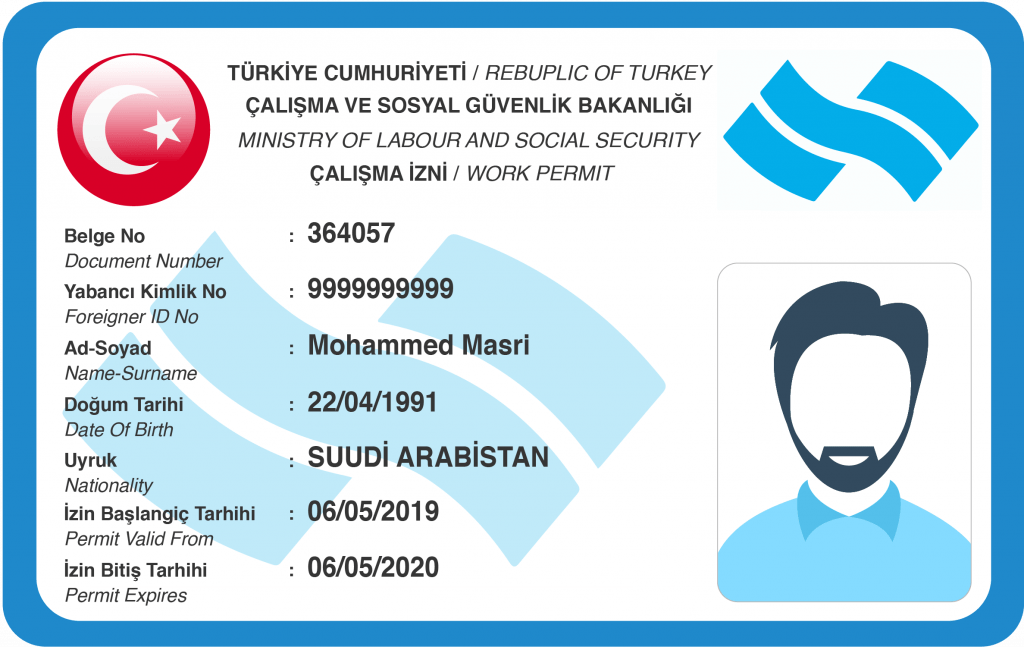Understanding anti-money laundering regulations in Turkey is crucial for anyone involved in the financial sector. Turkey’s stringent AML regulations are designed not just to curb illicit financial flows, but to uphold integrity within its economic framework. Falling foul of money laundering laws can lead to severe penalties, making compliance in Turkey prioritous for both local businesses and international corporations. Financial crime prevention isn’t merely a formality here; it’s a critical safeguard that ensures the stability of its burgeoning economy. Did you know that by adhering to these guidelines, firms can safeguard their reputation and avoid hefty fines? Moreover, Turkey has been proactive in upgrading its AML systems to align with international standards. Navigating these regulations might seem daunting, but understanding them can lead to long-term growth and trustworthiness. In a world where compliance is key, mastering the art of financial crime prevention in Turkey is not just advisable—it’s imperative.
The Evolution of Anti-Money Laundering Laws in Turkey
In recent decades, anti-money laundering Turkey initiatives have undergone significant transformations. The nation recognized the pressing need to crack down on illicit financial activities and began to revolutionize its approach. By implementing rigorous AML regulations Turkey, it aimed to fortify its financial system. With each legislative update, these money laundering laws became more robust, making compliance in Turkey a top priority for businesses operating within its borders. The continuous refinement of these regulations signals the country’s commitment to financial crime prevention. This evolutionary journey reflects Turkey’s proactive stance in aligning with global standards, fostering trust among international financial communities. Businesses that keep pace with these changes not only safeguard themselves against legal repercussions, but also contribute to a more transparent and secure economy. Understanding this evolution is the first step in mastering compliance in Turkey.
Anti-money laundering Turkey efforts have reached new milestones with each passing year. Initially focused on building a foundational framework, the country has gradually tailored its AML regulations Turkey to counter evolving threats. From enacting stricter money laundering laws to enhancing monitoring mechanisms, every step taken underscores Turkey’s unwavering dedication to compliance in Turkey. Innovative digital systems now enable real-time transaction tracking, a key component in financial crime prevention efforts. The engagement of multiple stakeholders, from regulatory bodies to financial institutions, emphasizes the collective commitment to thwart financial crimes. Interestingly, Turkey’s alignment with international AML norms has not only bolstered domestic security but also strengthened its position within global financial networks. For businesses, this evolution presents a dual opportunity: align with stringent AML requirements and gain an edge by demonstrating commitment to transparency and ethical practices in the global marketplace.
The evolving nature of anti-money laundering Turkey laws demonstrates the nation’s adaptability in the face of new challenges. Initially, AML regulations Turkey centered on foundational structures, but have now expanded to integrate sophisticated technology. With each modification, money laundering laws become more comprehensive, enhancing compliance in Turkey. By incorporating advanced digital solutions, regulators can swiftly identify and respond to suspicious activities, bolstering financial crime prevention. These targeted efforts are not isolated but rather form a collaborative approach involving governmental bodies and private entities alike. As Turkey continually refines its approach, businesses benefit by aligning with these stringent rules, ultimately securing their operations and reputation on a global scale. This evolution reflects a firm resolve to maintain a resilient financial backbone, one attuned to international best practices, while cultivating trust both at home and abroad.
Key Compliance Challenges for Financial Institutions
Turkey’s financial sector faces a unique set of challenges regarding anti-money laundering Turkey regulations. Financial institutions often grapple with a complex regulatory landscape that demands not only meticulous attention to detail but also a proactive stance in financial crime prevention. One primary concern is ensuring seamless integration of AML regulations Turkey with existing operational frameworks. This requires constant updates and training for compliance officers. Missteps can lead to breaches, risking both financial penalties and reputational damage. Moreover, the digital shift has introduced new vulnerabilities, making adherence to money laundering laws more critical than ever. Financial institutions must strategize to align with compliance in Turkey, not just to meet legal obligations, but to fortify their standing in a competitive market. Successfully navigating these hurdles can foster trust and offer a competitive edge, thereby turning challenges into opportunities.
Financial institutions in Turkey encounter myriad challenges when tackling anti-money laundering Turkey norms. Aligning AML regulations Turkey with rapidly evolving digital platforms is a steep hill to climb and lacks a one-size-fits-all solution. Emerging technologies, while promising efficiency, often come with their own set of risks, complicating the adherence to money laundering laws. This fast-paced tech evolution demands relentless vigilance and adaptation from compliance teams. Firms must ensure robust systems are in place to thwart financial crime, a task easier said than done. Maintaining compliance in Turkey is not just ticking a regulatory box; it’s about embedding financial crime prevention into the very DNA of an organization. Through rigorous risk assessments and staff training, financial institutions can transform these challenges into a springboard for resilience and growth, ensuring their foothold remains strong in an ever-dynamic financial landscape.
The path to mastering anti-money laundering Turkey regulations is strewn with challenges for financial institutions. One pressing hurdle is the ever-changing regulatory environment, which requires financial institutions to constantly pivot. Staying updated on AML regulations Turkey involves not only keeping pace with amendments but also interpreting their implications correctly. Additionally, money laundering laws demand stringent identity verification and reporting measures, requiring substantial resources. These necessities pose a strain, especially on smaller institutions striving to maintain compliance in Turkey. Furthermore, the human factor—ensuring that staff are both capable and educated in compliance matters—cannot be overlooked. The stakes are high: failure in financial crime prevention could result in grave financial and reputational repercussions. However, by investing in comprehensive compliance strategies, firms can transform high-stakes challenges into stepping stones for safeguarding their reputation and ensuring long-term success in the ever-shifting financial landscape.
Best Practices for Navigating AML Frameworks in Turkey
To skillfully navigate AML regulations Turkey, businesses should adopt a robust, proactive approach. Anti-money laundering Turkey demands that organizations establish strong compliance programs, tailored to mitigate risks of financial crime. Regular audits, rigorous monitoring, and staff training are essential. Envision it as building a fortress—you wouldn’t want any gaps, right? Companies must ensure that every employee knows the ins and outs of compliance in Turkey. Staying ahead of regulators requires continually updating policies to align with ever-evolving money laundering laws. Alongside internal diligence, leveraging technology can act as a powerful ally. Automated systems can help flag suspicious activities swiftly, acting as an early warning system. This combination not only weatherproofs your firm’s financial crime prevention efforts but also solidifies its standing amidst evolving global standards. Keep a keen eye on changing directives to guard against costly missteps, thus securing both reputation and operational longevity.
Adopting the best practices for navigating AML regulations Turkey is like having a GPS for compliance in Turkey. First, grasp the essence of money laundering laws—think of them as the map you need to chart your course. Embrace technology-driven solutions for financial crime prevention; they’re your compass, pinpointing anomalies with precision. It’s essential to integrate seamless reporting mechanisms that connect directly with Turkish regulatory bodies. By doing so, you create a direct line of communication, ensuring prompt action and transparency. Furthermore, fostering a culture of compliance in your organization is crucial. Every employee must feel empowered to uphold anti-money laundering Turkey standards. Regular workshops and simulations keep everyone agile and informed. By weaving these practices into the fabric of your operations, you not only navigate the AML landscape effectively but also steer clear of potential pitfalls, safeguarding your business in the process.
Fine-tuning your approach to anti-money laundering Turkey involves more than just ticking boxes; it’s about cultivating a vigilant mindset that sweeps across all levels of your organization. Begin by harmonizing your internal procedures with AML regulations Turkey to construct a resilient foundation. Think of this alignment as tuning an orchestra—every section must hit the right notes or risk chaos. Invest in cutting-edge analytical tools that offer real-time insights into financial transactions, filtering out irregularities with needlepoint accuracy. Implement strong data security measures to shield sensitive financial information from prying eyes and ensure unyielding compliance in Turkey. Continuous education and training for your team is a must, reinforcing the culture of integrity and awareness. By weaving these practices throughout your structure, you effectively embed a culture of financial crime prevention. Not only does this proactive stance ward off potential threats, but it also fortifies your organization against the waves of fluctuating money laundering laws.






